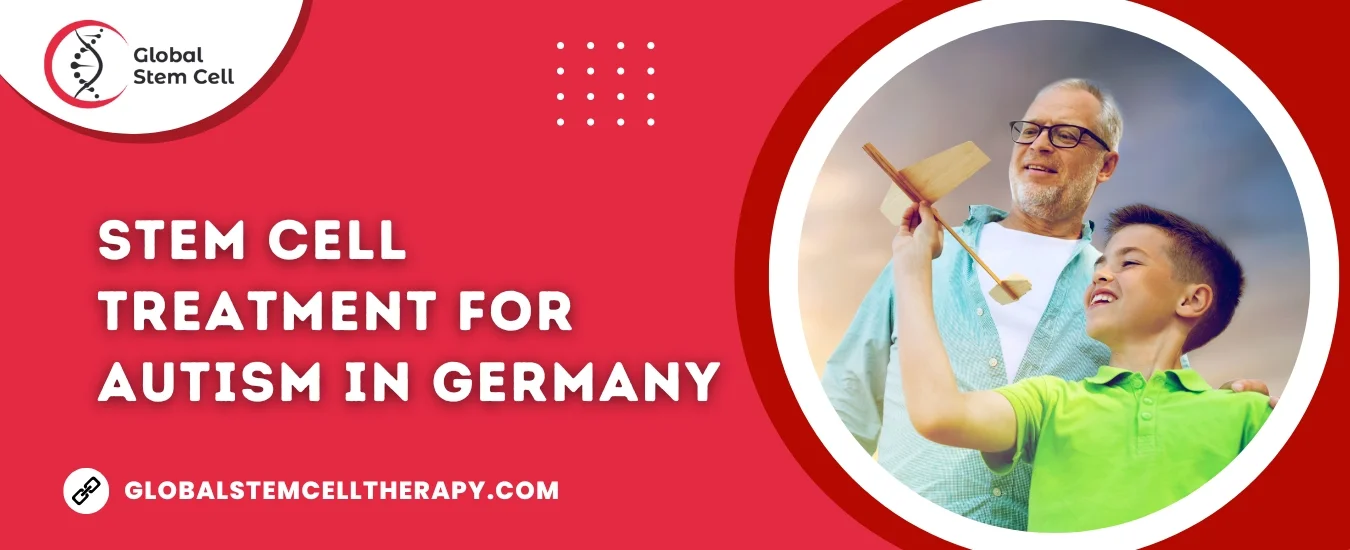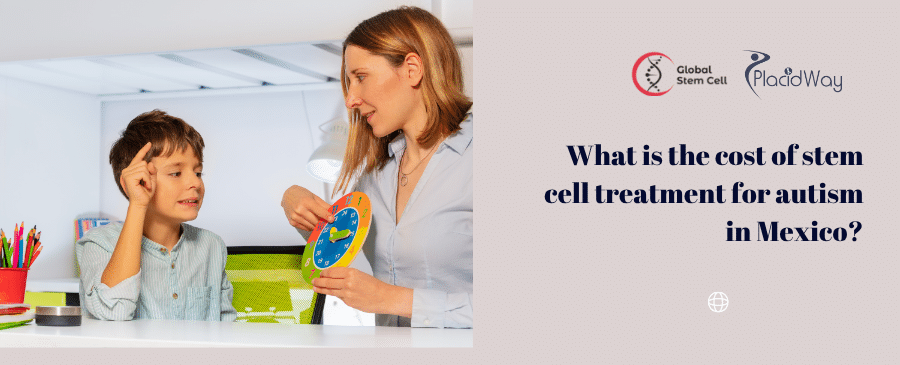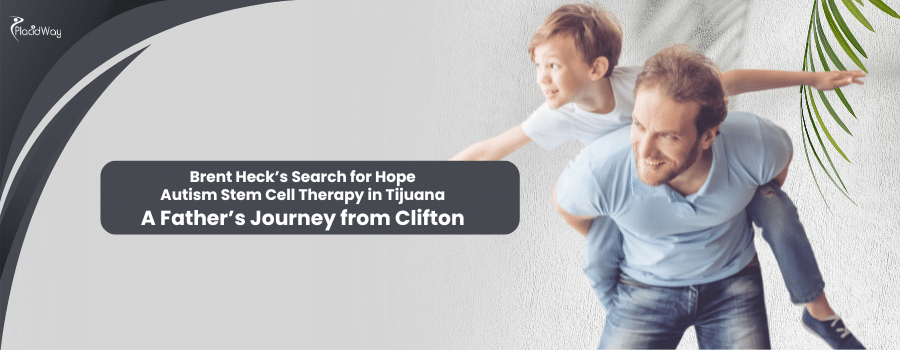Stem Cell Treatment for Autism in Germany
Table of Content
David Muller, a 16-year-old boy living in Hamburg, Germany, had been living with Autism since early childhood. Although he possessed remarkable talents in mathematics and music, his daily life was marred by significant challenges. Social interaction and communication proved to be a constant struggle for David, as he found it difficult to understand social cues and make connections with others.
Moreover, sensory processing issues added another layer of complexity, often leaving him overwhelmed and seeking solitude to cope with the sensory overload. Despite his intelligence and unique abilities, the education system struggled to provide the necessary support and accommodations for David, leading to frustration and feelings of isolation.
David’s parents, recognizing his untapped potential and desiring a better quality of life for him, embarked on a journey to seek specialized treatment for his autism. They believed that with the right therapies and interventions, David could overcome the challenges that hindered his progress and unlock his full potential.
Motivated by their love and determination, they set out to find reputable treatment centers in Germany that offered comprehensive programs tailored to the specific needs of individuals with autism.
David’s Challenges and Struggle
Throughout his life, David faced numerous challenges and struggles due to his autism. Social interaction proved to be one of the most significant obstacles for him.
He struggled to understand social cues, such as body language and facial expressions, which often resulted in misunderstandings and difficulty forming connections with others. This made it challenging for him to make friends and engage in meaningful social interactions, leaving him feeling isolated and longing for a sense of belonging.
Another major hurdle for David was sensory processing. He experienced sensory overload, where ordinary sounds, sights, or textures could become overwhelming and cause anxiety. This made it challenging for him to navigate environments with bright lights, loud noises, or crowded spaces.
The sensory sensitivities also affected his ability to focus and engage in daily activities, including schoolwork. David’s sensory challenges often left him feeling overwhelmed and disconnected from the world around him, further compounding his struggles and affecting his overall well-being.
Decision to Pursue Stem Cell Treatment
Driven by their unwavering determination to improve David’s quality of life, his family made the decision to explore stem cell treatment as a potential avenue for his autism. They were intrigued by the emerging research and anecdotal reports highlighting the positive impact of stem cell therapy on neurological conditions. After thorough discussions with medical professionals and extensive research, they became convinced that stem cell treatment could offer a new hope for David’s journey.
The family understood that stem cell therapy had its own set of uncertainties and that the field was still evolving. However, they saw it as an opportunity to address the underlying neurological aspects of autism and potentially enhance David’s overall functioning and well-being.
With careful consideration and a belief in the potential benefits, David’s family made the informed choice to pursue stem cell treatment, hoping it would provide him with a breakthrough in his autism journey and open doors to a healthier and more fulfilling life.
Researching Autism Treatment Center in Germany
With the decision to pursue treatment for David’s autism, his family began an extensive research process to find a reputable Autism Treatment Center in Germany. They were committed to finding a facility that offered comprehensive and specialized programs tailored to the unique needs of individuals on the autism spectrum. The family understood the importance of finding experts who could provide evidence-based therapies and interventions to support David’s development and growth.
During their research, they considered several factors. They looked for treatment centers with a strong reputation and a track record of success in working with individuals with autism. They explored the center’s approach to treatment, ensuring it aligned with their values and goals for David’s well-being.
They also considered the qualifications and expertise of the staff, including therapists, doctors, and educators, to ensure they had the necessary knowledge and experience in autism-specific interventions. After careful evaluation and consultation with medical professionals, David’s family found a renowned treatment center in Germany that met their criteria and instilled confidence in their pursuit of a healthier future for David.
Preparing for Autism Treatment
With their chosen treatment center in Germany secured, David’s family embarked on the important task of preparing for his autism treatment. They understood that successful treatment required a collaborative effort involving the entire family.
They attended meetings with doctors, therapists, and educators to discuss David’s challenges, strengths, and goals. These discussions helped the treatment team gain a comprehensive understanding of David’s needs and allowed them to develop an individualized treatment plan tailored specifically to him.
To better support David during his treatment, his parents proactively sought out resources and information. They attended workshops and support groups focused on autism, where they learned practical strategies for helping David cope with his challenges at home and in social settings.
They also made modifications to their home environment to create a sensory-friendly space, ensuring that David would have a comfortable and supportive environment to thrive in. By taking these preparatory steps, David’s family aimed to create a strong foundation for his treatment journey and maximize the potential for positive outcomes.
Post-Treatment Care and Recovery
Following David’s autism treatment, his post-treatment care and recovery became crucial in sustaining and building upon the progress he had made. The treatment center in Germany provided a comprehensive plan for his ongoing care, which included regular therapy sessions and follow-up appointments to monitor his progress and adjust interventions as needed. David’s family remained actively involved in his post-treatment care, attending therapy sessions, and working closely with the treatment team to ensure a smooth transition back into daily life.
In addition to professional support, David’s family continued to implement strategies and techniques learned during the treatment phase at home. They created a structured routine to provide predictability and stability, which was particularly helpful for David’s sensory sensitivities.
They also encouraged and facilitated social interactions and community involvement to help David practice and refine his social skills. By maintaining a collaborative and proactive approach to post-treatment care, David’s family ensured that his recovery continued to progress, supporting his ongoing growth and development as he transitioned into a healthier and more fulfilling life.
Improvements and Impact on David’s Life
The comprehensive treatment that David received for his autism had a significant impact on his life, resulting in notable improvements across various domains. With speech therapy, David made remarkable progress in his communication skills.
He developed the ability to express his thoughts and feelings more effectively, allowing him to better connect and engage with others. This newfound ability greatly enhanced his social interactions and improved his overall quality of life.
Furthermore, the occupational therapy component of David’s treatment helped him regulate his sensory sensitivities. He gained strategies to manage sensory overload, reducing anxiety and improving his ability to navigate different environments. This improvement allowed him to participate more fully in daily activities, such as attending school, engaging in hobbies, and connecting with his surroundings.
As a result, David’s confidence and self-esteem flourished, enabling him to explore his passions, such as music and mathematics, with greater focus and enjoyment. The improvements he experienced through treatment opened doors to new opportunities, empowering him to embrace his unique abilities and thrive in various aspects of his life.
Spreading Awareness about Stem Cell Treatment for Autism
Inspired by the positive impact of stem cell treatment on David’s life, he and his family became passionate advocates for spreading awareness about this innovative approach to autism treatment.
David took the initiative to share his personal journey and experiences through various platforms, including public speaking engagements, social media, and his blog. Through these channels, he highlighted the potential benefits of stem cell therapy for individuals with autism, emphasizing the need for further research and exploration in this field.
David’s efforts to raise awareness about stem cell treatment for autism aimed to educate and inform the public, including families and individuals affected by autism. He shared information about the promising research surrounding stem cells and its potential for addressing the underlying neurological aspects of autism.
By sharing his story, David aimed to empower others to consider alternative treatment options and encourage dialogue between healthcare professionals, researchers, and families. His advocacy work aimed to foster a greater understanding of stem cell treatment and promote the importance of early intervention and personalized approaches to autism care.
Ready to explore innovative treatment options for autism in Germany? Contact us now to learn more about stem cell therapy and how it can potentially benefit individuals with autism. Take the first step towards a brighter future for your loved one.
Disclaimer: The story depicted above is fictional and is not intended to represent any specific individual or medical treatment. It is essential to consult with medical professionals and conduct thorough research before pursuing any treatment options. Autism spectrum disorder affects individuals differently, and the effectiveness of treatments may vary. Always seek professional advice for personal situations.







